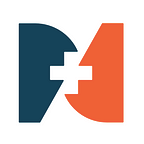When Aid Gets Manufactured Locally
Connecting the dots to get needs met, fast
When you think of international aid, what comes to mind? Is it packages of food being thrown off of airplanes? Red Cross trucks driving through mud-packed roads? Military transporters ferrying tons of goods across borders? The images we have of aid are always of the items when they are on the ground or en route. But the reality is that international aid is often bound up in slow, cumbersome, and expensive supply chain management. In fact, it’s estimated that a shocking 60–80% of aid funding is spent on logistics.
So what would happen if we made it possible for organizations to procure their supplies from local manufacturers? We could probably see the time and money spent on procuring supplies go down, and the speed at which items could get to local organizations go up.
These are some of the hypotheses we’re testing this year through a pilot with the humanitarian organizations Field Ready and Humanitarian OpenStreetMap and funded through Humanitarian Grand Challenge Canada.
Using NeedsList’s RespondLocal software, Field Ready and Humanitarian OpenStreetMap are helping humanitarian responders match COVID-19 related needs to local manufacturing capabilities in Kenya, Uganda, Iraq and Bangladesh.
First responders in these areas report needs to Field Ready’s teams and partners, who collect data on manufacturing capabilities and then publishing the data on a map.
The maps and database on RespondLocal show requests and match them to local manufacturers who can produce PPE
Circular and Sustainable Matching
The potential impact of this project for humanitarian efficiency and supporting local capacity cannot be underestimated. And we’re happy to announce a very early — but tantalizing — case study to illustrate the power of this initiative.
One of our partners in Uganda, Lira NGO Forum, recently claimed 2200 face shields from a local manufacturer, Takataka Plastics, which recycles plastic waste into new materials. The shields are being put to use immediately, distributed to local health workers across northern Uganda to aid in their efforts to fight COVID-19.
We’re just at the very beginning of an ambitious project to match local manufacturers with needs in these four countries, and we expect to encounter challenges along the way. But if there’s an organization that has proven its ability to make useful items locally, it’s Field Ready. They’ve worked in extremely challenging humanitarian contexts around the world, and their unwavering belief in the ability of local populations to meet their own needs is aligned with our own mission and vision. By leveraging our and Humanitarian OpenStreetMap’s technology, we believe we have the collective capacity to create an essential ‘public good’ infrastructure that is badly needed and will be accessible to all.
Follow along on Twitter!
